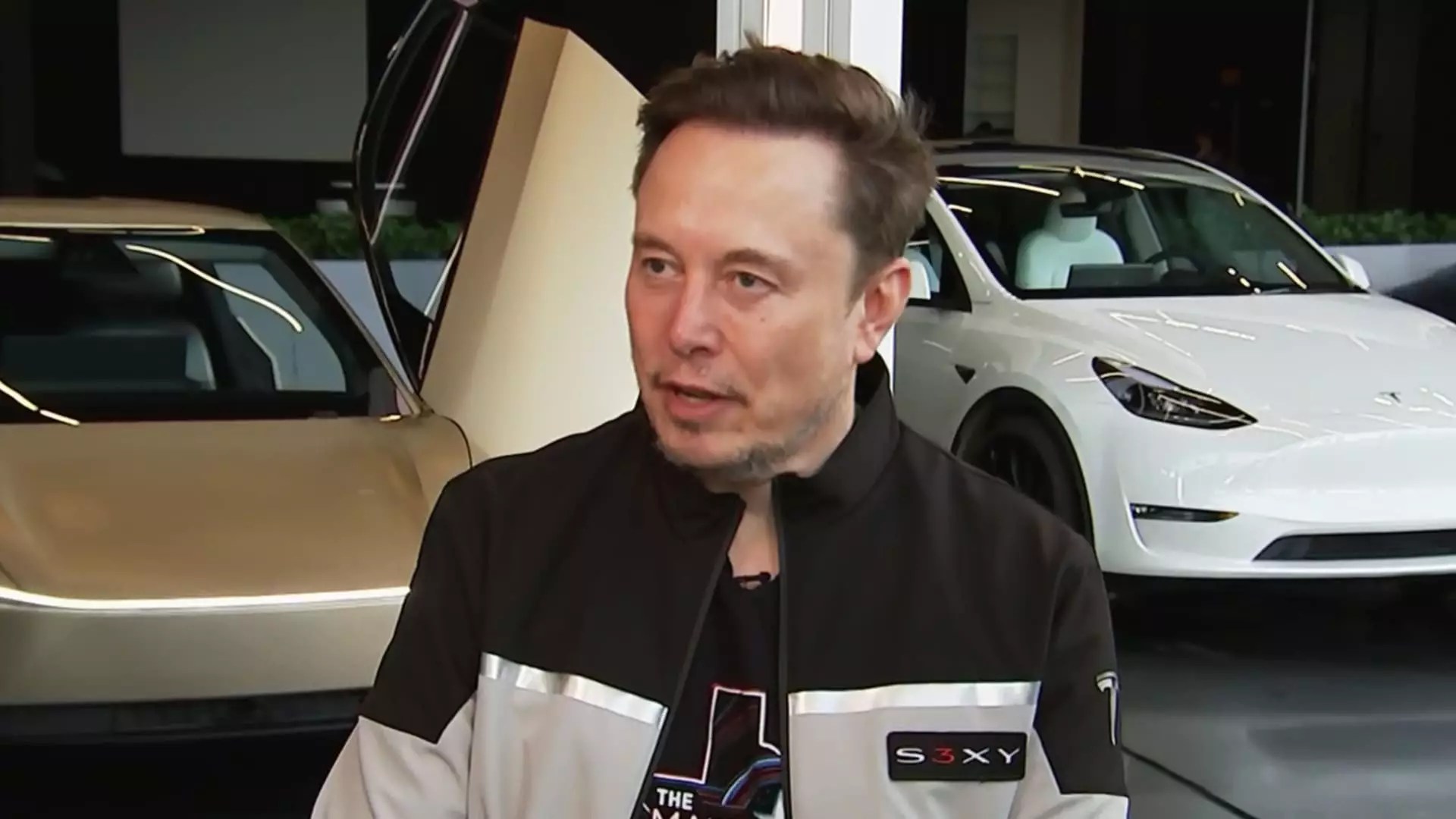Elon Musk’s grand proclamations regarding Tesla’s impending robotaxi rollout raises serious skepticism and underscores a crumbling facade. While the charismatic CEO promises a future where driverless Tesla Model Y vehicles will seamlessly glide through the streets of Austin, one must wonder whether he’s selling a vision the company can truly deliver. The hype is palpable, but history suggests that talk can often outpace reality, especially when it comes to technological innovations like autonomous vehicles.
Musk’s confidence is built on years of optimistic predictions that have often fallen short. For the better part of a decade, he has claimed the world was just one calendar year away from fully autonomous vehicles—a catchy phrase that is starting to wear thin. The promise of perfection has yet to be fulfilled, and the recurrent pattern of broken timelines raises questions: How much faith should investors and consumers have in a CEO who seems perpetually “one year away” from success?
Scaling Challenges Ahead
Musk’s plan to launch a modest fleet of ten vehicles in Austin to evaluate the system’s operational feasibility is prudent on the surface. However, what happens if even this scaled-down projection falters? There’s a significant gap between piloting a handful of robotaxis and achieving the widespread adoption that Musk envisions. Every day brings forth new headlines of mishaps involving autonomous vehicles, hinting at the uphill battle ahead for Tesla. This could hinder Musk’s aggressive expansion plans into larger markets like San Francisco and Los Angeles, where the regulatory and infrastructural frameworks are vastly different.
Moreover, relying on such a minimal fleet raises another concern: Can a glimpse of success with ten vehicles genuinely indicate a foolproof system? It seems that the answer lies in yet another layer of uncertainty.
Political Headwinds and Consumer Sentiment
The elephant in the room: Musk’s political entanglements. Recent reports regarding his considerable financial support for former President Donald Trump and his controversial standing in German politics cannot be ignored. Customers usually prefer avoiding brands that seem embroiled in political controversy, and this sentiment only escalates as the political landscape becomes increasingly polarized.
Musk’s assertion that consumers shouldn’t care about a CEO’s political views is arguably naive, if not blatantly out of touch. In an era where brand loyalty is tied to corporate values and ethics, dismissing the impact of his political affiliations could backfire, resulting in consumer boycotts and further tarnishing Tesla’s image. This social backlash may undermine the company’s operational goals and dampen demand for its products.
Outdated Technology Poisoning Progress
While Musk continues to champion his brand of camera-based artificial intelligence as superior, a closer examination unveils a glaring problem. Tesla’s approach fundamentally overlooks the methodological rigor of competing technologies that utilize lidar and radar. This dismissive attitude towards tried-and-true sensor technology might be a significant oversight. For a technology meant to safely and reliably navigate public streets, being stubbornly insistent on a singular approach could prove catastrophic.
Additionally, the notion that “cheap” translates into more sales is symptomatic of Musk’s broader economic philosophy, which favors volume over quality. It risks cornering Tesla into a niche that may not satisfy the complex safety standards expected by regulatory bodies—or the traveling public.
The Overhyped Everything Bubble
If there’s one overarching trend that deserves scrutiny, it’s the manner in which Tesla has been marketed to the public. The excitement around Tesla is reminiscent of an “everything bubble,” where both investors and consumers are buoyed by an irrational exuberance. Musk’s exorbitant net worth, perched precariously at the top of the Bloomberg Billionaire’s Index, serves as just another testimony to the extreme valuation bestowed on the company.
Yet, if there’s anything history has taught us, it’s that bubbles eventually burst. As Tesla continues to face setbacks, market corrections may follow, and the resulting fallout could impact everything from public perception to stock prices, creating a ripple effect that could plunge the company into turmoil.
The robotaxi dream is one that many desire to believe in, but the ticking clock of accountability is drawing closer. The myths Musk has woven around his vision may very well collide with the harsh realities of technology, politics, and consumer sentiment—ushering in what could be yet another spectacular failure in the annals of Silicon Valley’s most ambitious ventures.


Leave a Reply